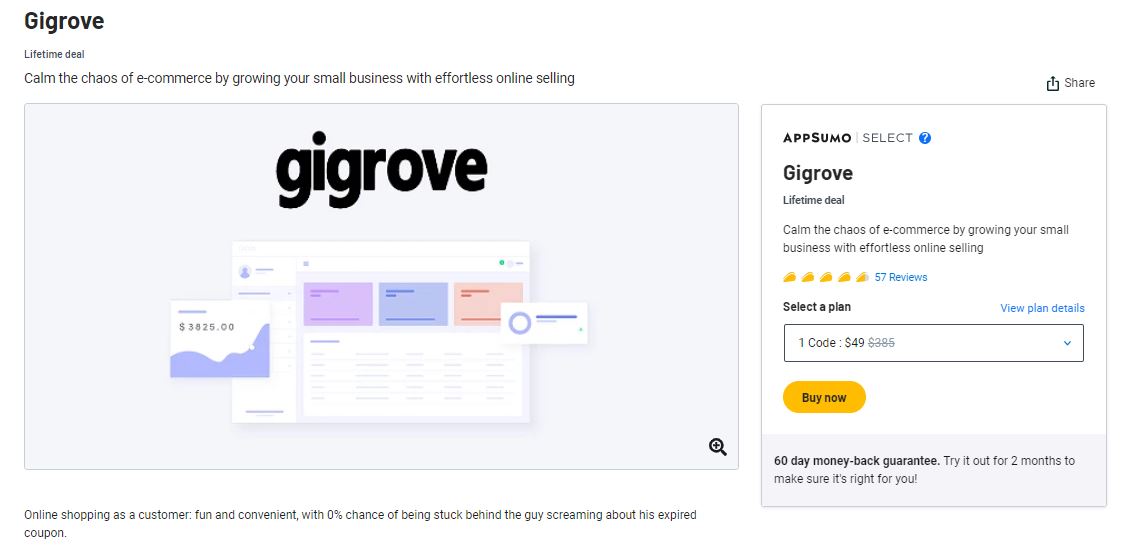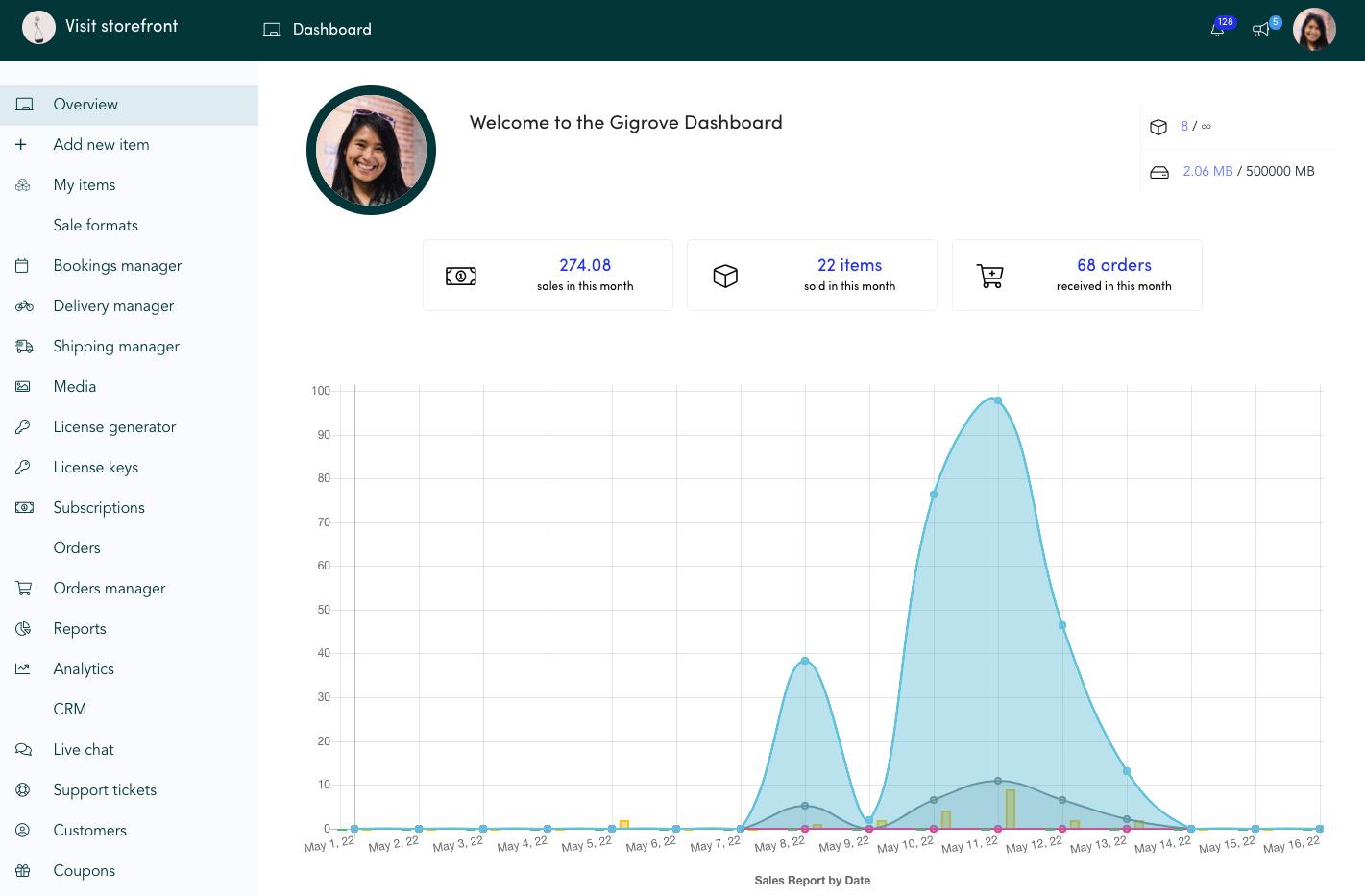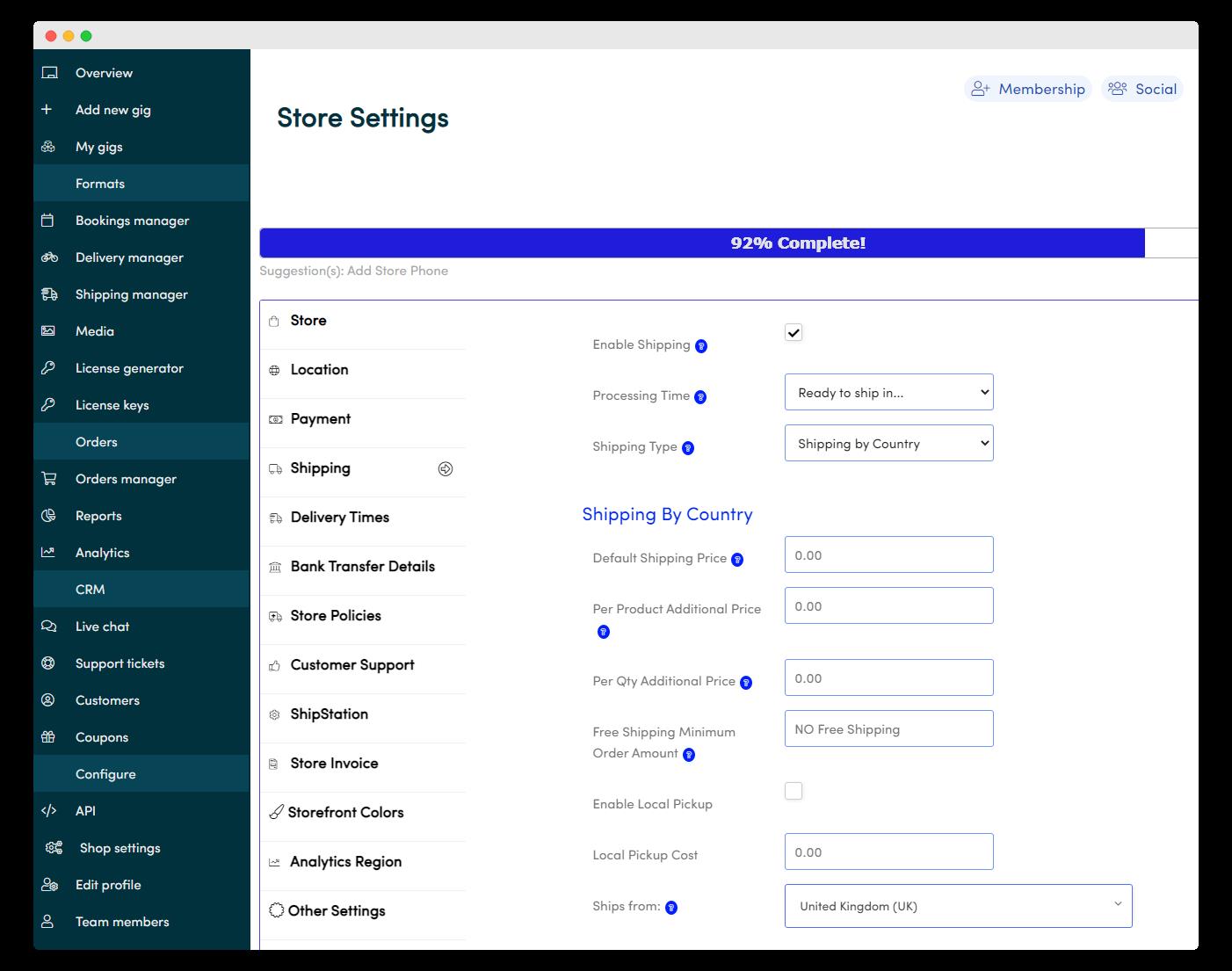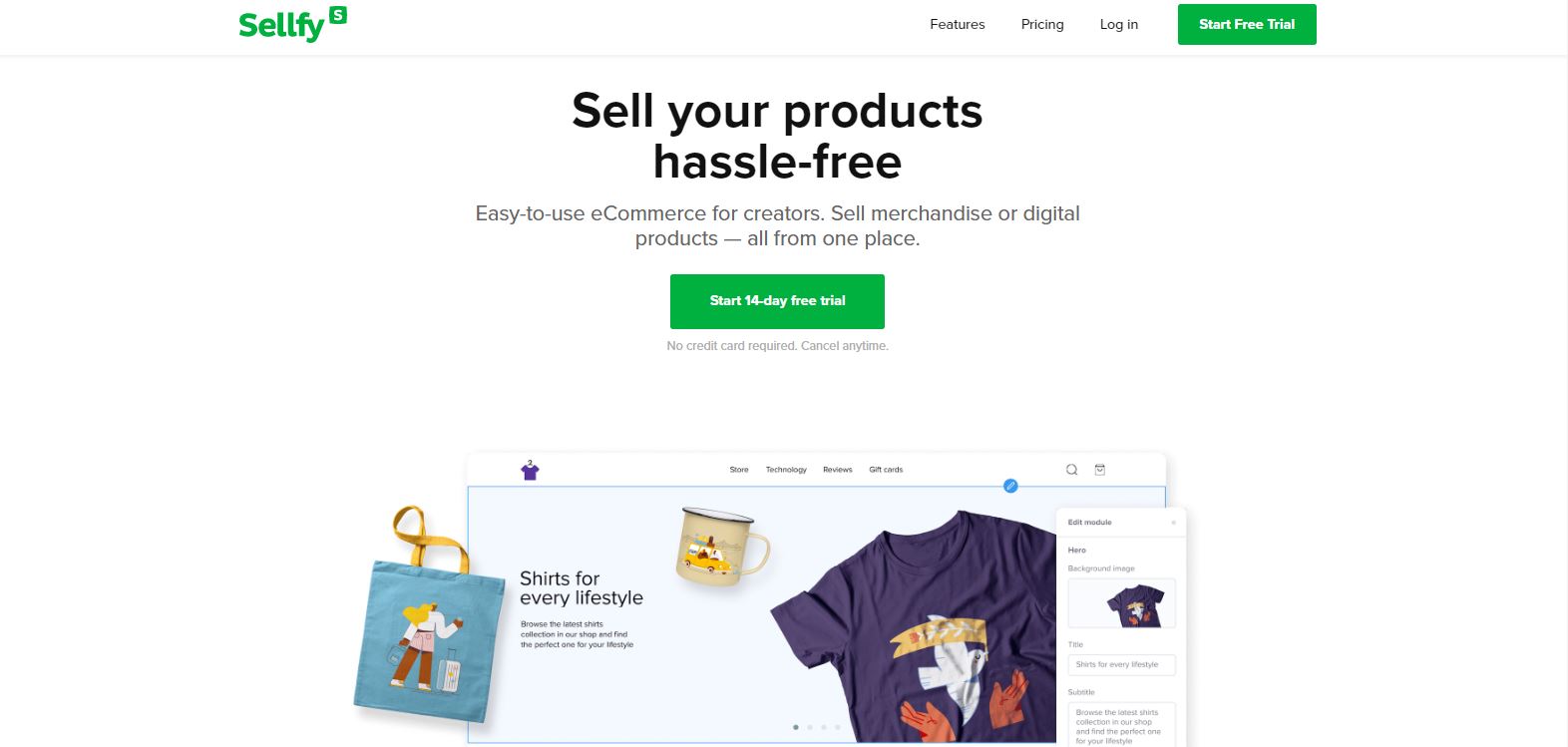BigCommerce is a prominent eCommerce platform that allows business owners to set up an online store and sell their items. It is a highly scalable and cost-effective solution for launching an online store, equipped with useful tools and features, but given its complexity, it is not the best option for every online business.
As a result, in this article, we will offer you some of the best available alternatives, which you can examine further and select the one that appears to be the most suitable for you.
1. Gigrove

An all-in-one eCommerce solution, Gigrove will help you build your online store with all its great tools and features and assist you with sales, payments processing, and more! This one is designed for freelancers, consultants, teams, and small businesses to start a branded online store. It will help you sell products and services, manage all aspects of your online store, and grow your client list with its integrated eCommerce tools! It also allows you to connect your custom domain to your store made on Gigrove.

It offers Bookable services that can be set up with booking software to help your clients make appointments or reservations. This feature comes in handy for workshops, fitness businesses, events, and tours and activities. With this one, you can accept online payments and set time and availability.
The Subscription billing feature enables you to offer subscriptions for your clients to sell products or services on a daily, weekly, monthly, or yearly basis. This way, you can attract new customers to your store by offering flexible subscription options, increasing revenue.
Increase online sales by personalizing your items or services using files, dropdowns, checkboxes, and custom price inputs with the Customized product feature. With this one, your customers will be able to customize your products by their preferences and shop for such products.

Manage shipments and all the related things with a Shipping manager that helps you easily manage your domestic and international shipments. This feature will help you with shipping calculations based on the customer’s location, product price, shipment weight, order amount, and other parameters.
Another stunning feature you can manage with Gigrove is Delivery management which allows you to set up delivery methods, assign a delivery person who will have access to the dashboard, track delivery status, and get notified about it. Customize currency and language, and add additional cost per delivery shipping.
To start using Gigrove, you just need to enter some details in the Store settings section – add the store logo and banners, payment methods, or shipping costs. It supports selling physical products, digital content, and services.
Adding a physical product starts by entering its name, cost, description, images, and acceptable payment methods. Underneath that, you will add some advanced information such as its attributes, meta descriptions for SEO, or branded notification email.
Selling digital content is no different, except you will need to enable it and, in the Downloadable section, add files such as illustrations, photos, videos, audio, software, or documents. You can set up a maximum number of downloads for each product, expiry date, and other restrictions.
Speaking of selling services, customers will have the option to access the calendar and book the available appointment. Set up your available hours, and they will be shown directly in the store, and every service request will appear in the Bookings list.
Pricing
Gigrove has two pricing plans without any hidden fees and charges for bandwidth or transaction limits – the Plus plan will cost you $14.90 a month, while the other one, the Premium plan, is available for $29 a month.
2. Shopify

One of the most popular alternatives is Shopify. Due to its flexibility, a bunch of features, versatility, and great user experience, it is widely used among individuals for setting up and managing an online store.
Best for small businesses, and beginners, Shopify requires no coding skills whatsoever! With this one, you can easily manage even larger stores with high traffic,
Key features: Drag-and-drop shop builder, Templates, Analytics, Inventory management, Fast checkout, and Integration with more than 3.000 apps.
3. Squarespace

Although this one is mainly a website builder, it is also well-known for its great tools for developing a content-focused eCommerce store! Squarespace is a cloud-based platform that requires no coding skills.
You can choose from over 140 built-in templates for your store and allow your customers to browse your products, add them to the cart, and check out in simple steps.
Key features: Subtle product descriptions, Videos, and images for every product, Related products list, CMS, Editing tools, Mobile app, Product management, Appointment booking, and more.
4. Sellfy

Sellfy is a great place for creating an online shop for content creators and individuals who want to sell their merchandise and digital products! Setting up the store can be done in under five minutes with a couple of clicks – sign up, add your products, customize the store a little bit, and publish it!
Its built-in marketing tool will help you promote and increase sales and reach more audiences through social media platforms or your website. You can design, create and sell on-demand printable products, as well as various digital products.
Key features: Sell products and subscriptions of all types, High customization options, Connect your domain, Translation, Shopping cart, Mobile devices optimization, Discount codes, Email marketing, and various payment options.
Final Words
Nowadays, there are multiple choices for establishing your store in the digital age without using the BigCommerce option! Gigrove, with all of its features and tools, is one of the greatest tools for this purpose.
It is a proper option for individuals who want to have a store up and running quickly and efficiently.
